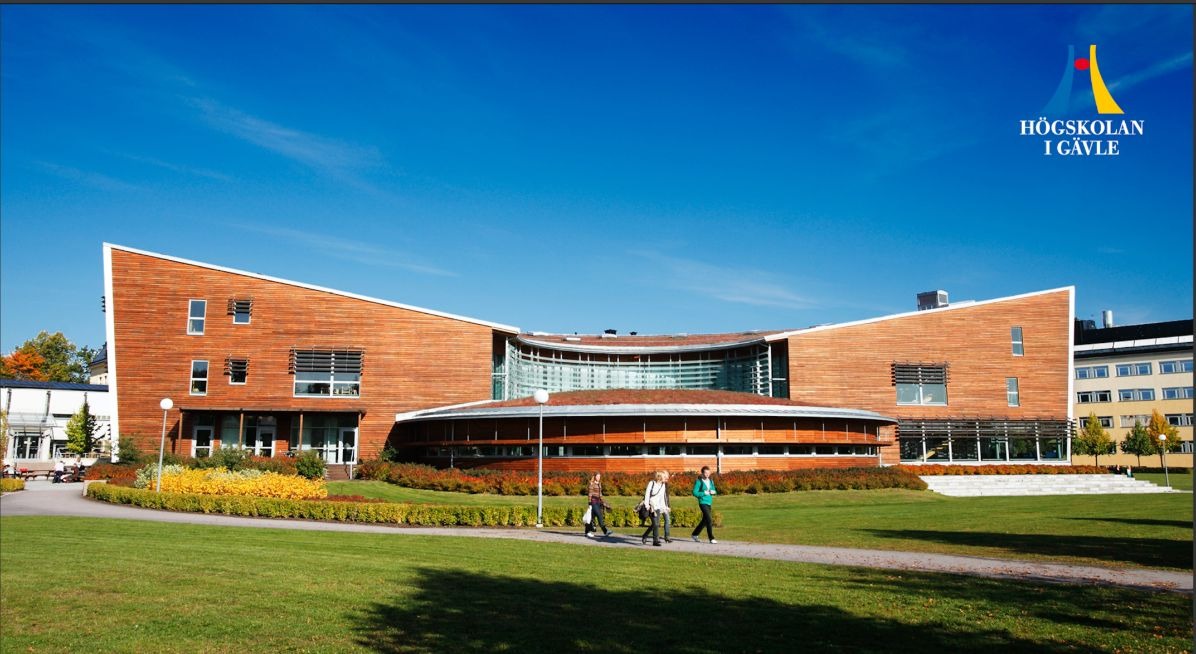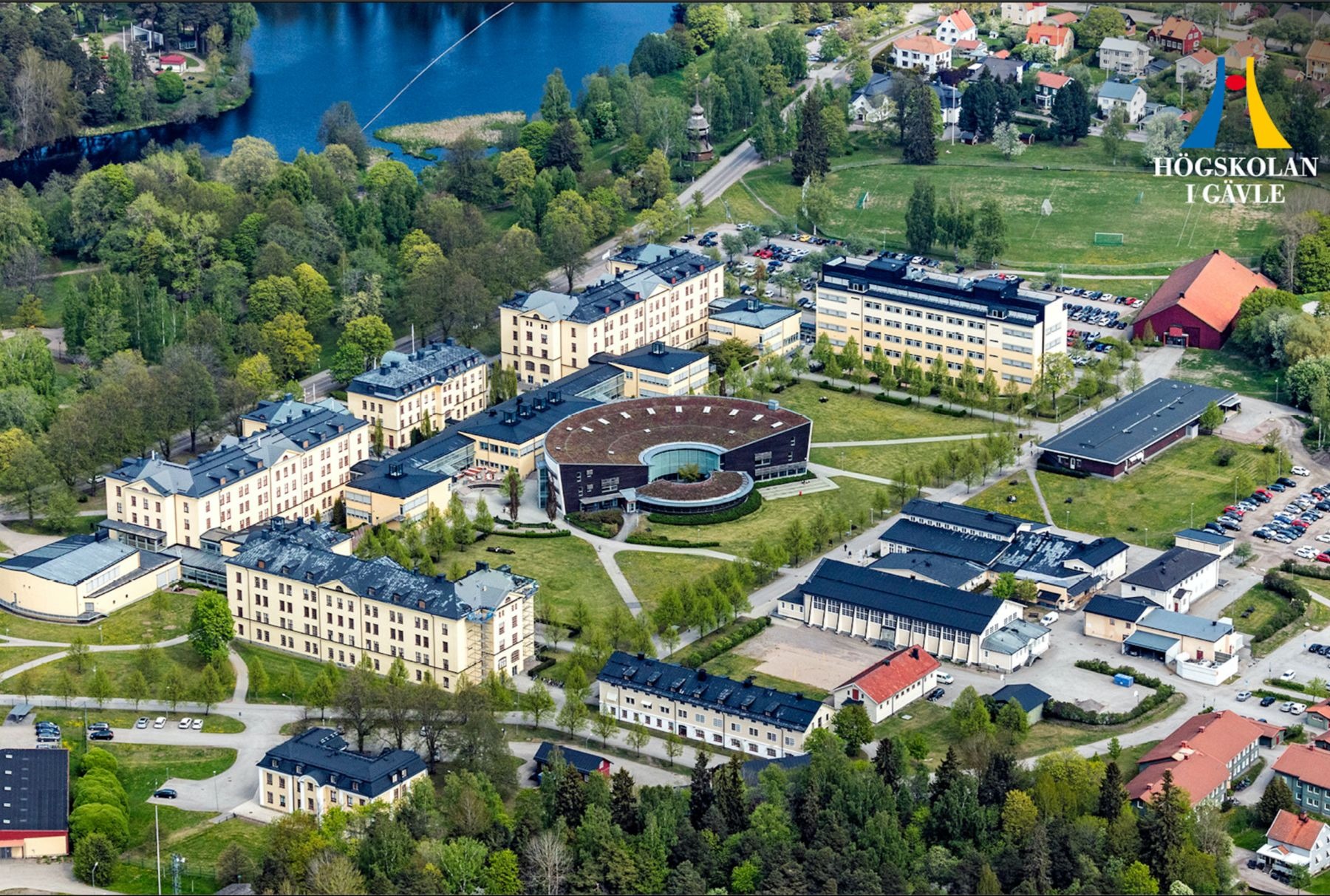University of Gävle, Sweden
Learning Environments of Tomorrow (LET)
The University of Gävle is located in Gävle, on the east coast of Sweden, about 200 km north of Stockholm. It is the most popular university of comparable size in Sweden, with the highest number of applicants to both programmes and freestanding courses. Around 16000 students attend 60 programmes and 300 freestanding courses within a wide range of areas such as:
- engineering
- criminology
- business
- administration
- teacher education
- social work
- nursing
- energy systems
The courses and programmes offered build on a long tradition of close collaboration with the region and a strategic focus on societal knowledge demands. The University of Gävle has the right to award qualifications in nine third-cycle subject areas within Built Environment and Health-promoting working life: Electronics, Energy Systems, Environmental Psychology, Geospatial Information Science, Indoor Environment, Industrial Engineering and Management, Caring Science, Occupational Health Sciences, Social Work and Sustainability Science. The University of Gävle is an important employer in the region with around 750 employees.
About the research programme Learning Environments of Tomorrow (LET)
Learning Environments of Tomorrow is a newly established strategic, multidisciplinary research program at the University of Gävle and it is here that CoReD project sits. The LET programme came into being as a result of the work undertaken by ROLE (Research on Learning Environments https://hig.se/role), a research group whose members have conducted learning environment research in Education for over a decade, with funders such as the Swedish National Research Council, Vinnova and AFA Insurance. ROLE inquires into educational environments using relational and spatial perspectives, with an an overarching aim to contribute to research leading to better conditions for teaching, learning and social sustainability. ROLE studies the pedagogical and didactical aspects of relations between (a), design and usage of schools, preschools and playgrounds, artefacts such as furniture and technology, (b), conceptions of education and its purposes among students, staff and management, in particular during transitions into new kinds of learning environments including hybrid and multi-zone ones (c) teacher and student agency in learning environments, (d) technological surveillance and safety in schools, and (e), social practices in education – relationships in schools, preschools and leisure pedagogy.
CoReD - Collaborative Re-Design with Schools "Getting together to change school space"
Research shows that well-designed learning spaces can impact on the wellbeing, engagement and attainment of learners, and provide pivotal support for school level change. Raising educators’ awareness of school space is beneficial, enabling them to adjust their setting or their practices. If new or redesigned school premises are to be successful, we need education professionals to appreciate the impact of school space and be supported to contribute in an informed way to discussions and change.
School users contribution could, and should, range from evaluating their own classroom or school space, to changing local space and practice, through to engaging with national policy agendas relevant to school premises.
The overarching aim of this project is to undertake activities and develop resources that will result in increased understanding of educational environments, firstly by education professionals within their own contexts, but subsequently more widely, influencing local and national debates and policy. The project activities and outputs will support teachers and school leaders to engage more effectively with their learning environment, empowering them in decisions made about facilities, material resources and digital provision.
CoReD researchers have devised general approaches and specific methods for use in their own research when working with teachers, school leaders and students to develop school learning environments. The aim now is to develop internationally trialled resources, which can be used by the teaching profession as freely-available, stand-alone tools that do not need to be implemented or analysed by university researchers. This aim will be achieved through collaborative work between the project partners and education professionals, trialling the tools across six diverse European countries. The resulting tools, case studies and practitioner guides will be translated into a range of languages and hosted on an open-access website linked to relevant media.
Collaboratively, we will drive improvements in education through supporting school communities to understand the significance of the learning environment and to undertake informed change.
CoReD in Sweden
Sweden introduced a general “folkskola” as early as 1842. This became a seven year comprehensive school system in the 1930s (now ten years). Almost all students attend upper secondary school for three additional years. Throughout Sweden, there are a range of schools in use which were built during different time periods. Whilst schools in earlier periods were built to a similar design using centralised guidelines, (making it easy to spot a school built in the 1960s for example), today school designs are more diverse; there is little central guidance available, and private actors have built many schools, particularly in larger cities.
In the LET research program schools are studied as eco-systems in which different influences intermingle to form educational environments. The research team has worked on case studies, examples of moving towards safe and de-segregated secondary schools, and transitions into activity-based educational environments. In our latest project, we worked with a researcher in architecture to evaluate nine schools using walk-through post occupancy evaluation. More information and a short film clip with English subtitles can be found here: https://www.ifous.se/ifous-fokuserar-pa-att-bygga-skola/
In the CoReD project, we will be working with two schools who want to develop their learning environments and test different tools in order to explore and better align their vision, pedagogy and built environment. One of the participating schools is facing a thorough rebuild and is testing the tools with the aim of contributing to better design of the new learning environment. The second school has been recently renovated and is now in an iterative phase of school development focusing on artefacts such as furniture and technology.
The tool developed by the Swedish team of CoReD is the Pedagogical Walkthrough.
The Swedish research team
Anneli Frelin is Professor of Curriculum Studies at the University of Gävle, Sweden. She has conducted projects on topics such as:
- whole-school approaches to creating sustainable educational environments
- safe schools
- teachers’ professionalism
- teacher commitment
She currently co-directs the strategic research area Innovative learning at the university, in addition to LET.
https://www.hig.se/annelifrelin
Jan Grannäs is Associate Professor of Curriculum Studies at the University of Gävle, Sweden. He has conducted research projects on:
- sustainable learning environments
- educational policy enactment
- technological school surveillance
- safe schools
- the Swedish school's democratic assignment and student participation
He currently directs the research program LET.
Frelin and Grannäs’ research group ROLE gathers researchers at the university and also other national and Nordic universities. They are members of the European research network DRAPES – Design, Research And Practice in Educational Spaces.
Contact details: Anneli Frelin anneli.frelin@hig.se Jan Grannäs jan.grannas@hig.se



